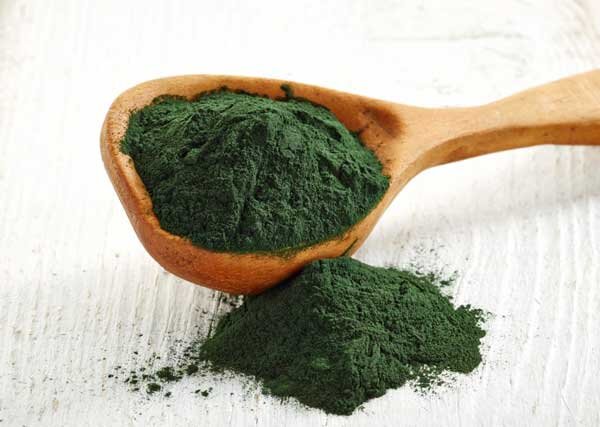Spirulina For Dogs
In This Article
Spirulina is a highly nutritious microalgae with a wide range of health benefits for dogs, ranging from helping with allergies to improving digestion.
Packed with chlorophyll, anti-oxidants and the essential fatty acid GLA, spirulina is a nutritional powerhouse. It’s also a great source of protein - at around 60% it has more protein per gram than meat! In fact, the Aztecs are documented eating spirulina for just this reason.
Interestingly, spirulina uses less resources than livestock to produce it’s protein and energy, making it an eco-friendly superfood addition to your dogs diet.
6 ways spirulina can benefit your dog:
What is spirulina?
Spirulina (Arthrospira Platensis) is a free-floating filamentous cyanobacteria most commonly found in tropical and sub-tropical lakes. The filaments resemble a spiral shape - hence the name. Typically it grows in lakes with lots of carbonates and a high pH, providing the ideal alkaline growing conditions.
This blue-green microalgae has a wide range of potentially beneficial functional actions, including anti-oxidant, and immuno-stimulating effects. It contains GLA, an omega-6 fatty acid with powerful anti-inflammatory properties.
Spirulina also improves the quality of gut microbiota, stimulating the “good” bacteria over the “bad” ones. In vitro research (ie. test tube - not in animals) has shown spirulina to have a positive microbial modulating effect, suggesting it could be a good dietary addition to improve digestion. It’s also easily digested because it lacks a cellulose cell wall.
Spirulina for allergies
The biggest reason we love spirulina - and why we use it in our Buffalo & Fish recipe - is because it can potentially help provide relief for dogs with allergies.
Spirulina exhibits anti-allergy properties by inhibiting the release of histamine from mast cells. One study demonstrated that spirulina enhances IgA production, increasing the number of antibodies made by the immune system to fight bacteria, viruses, and toxins. This study suggests that spirulina could play a pivotal role in mucosal immunity.
While further research is always needed, these anti-allergy properties are potentially great news for dogs suffering from itchy skin, hot spots or sore paws.
We combine spirulina with locally sourced raw honey and a big dose of anti-inflammatory fish in our Buffalo & Fish recipe, and have seen great results in reducing the awful effects of allergies in our dogs.
For more information about helping dogs with allergies, you can read more here.
What to buy
Spirulina is grown outside in fresh water, and then collected and dried into the powder you buy. There is a massive difference in the quality of commercial spirulina. The biggest issue is heavy metal contamination, which can be disastrous for your dogs health. For example, there are reports of cheap spirulina sourced from China containing high levels of lead, mercury and arsenic.
It’s really important to source spirulina that has been produced in strictly controlled conditions - without pollution or chemicals.
Spirulina is one of those ingredients that it really is worth sourcing a good quality product. If you are unable to find or afford high quality spirulina, don’t feed your dog a cheap alternative as it is likely to be contaminated.
It’s one of those ingredients that has to be top quality, or it’s just not worth feeding. It’s not worth the risk.
How to feed
Spirulina is such a potent food that only a tiny amount is needed to see the health benefits. A little goes a long way! Try a daily dosage of 1/8 teaspoon per 10kg of bodyweight.
To feed, mix the spirulina into your dog’s food as by itself it’s not very tasty. And like all great foods, spirulina is great for dogs and humans alike. Add some to your diet too and enjoy the amazing superfood that is spirulina!








